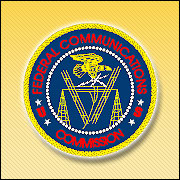
The Federal Communications Commission has redefined broadband speeds as 4 Mbps (megabits per second) for downloads and 1 Mbps for uploads.
Characterizing the move as “overdue,” the FCC pointed out that the previous standard of 200 Kbps (kilobits per second) in both directions was set in 1999.
The new speeds were included in the FCC’s sixth broadband deployment report, released last week.
These are the minimum speeds required to “stream a high-quality — even if not high-definition — video while leaving sufficient bandwidth for basic Web browsing and email,” reads the FCC document.
This type of usage fits in directly with the Section 706 definition of advanced telecommunications capability, the FCC said.
The FCC’s Recommendations
The new definition of broadband adopts the minimum speed threshold of the national broadband availability target proposed in the National Broadband Plan, the FCC said.
Americans are demanding high-quality online videos, and this demand is expected to grow at a maximum rate of more than 120 percent a year through 2013, the report states. This necessitates higher download and upload speeds.
“I think upping the speed is a good thing, and I think the FCC’s correct that 200 Kbps doesn’t get you very far in today’s Internet environment,” Carl Howe, director of anywhere research at the Yankee Group, told TechNewsWorld.
The FCC will monitor available technology and consumer expectations and modify its broadband benchmarks accordingly, the Commission’s report states.
Getting to Higher Speeds
Some infrastructure investment may be required if all Americans are to get access to faster broadband service. The FCC said it will consider the National Broadband Plan’s recommendations on ways to remove barriers to infrastructure investment and promote competition in the telecommunications markets.
This could end up costing the taxpayer, Howe warned.
“The thought is that this is going to help a lot of small broadband carriers get up to speed and modernize,” Howe explained. “But this likely includes more of the old-guard carriers who were trying to get by with DSL now being able to go to the government with their hands out for subsidies to modernize. That’s why the telecommunications industry wasn’t fighting reclassification.”
The FCC also took a swipe at broadband service providers, saying that statistics show about half of all broadband consumers today buy service advertised to deliver download speeds of up to 7 Mbps but get roughly half that speed. It calls for actual download and upload speeds of 4 Mbps and 1 Mbps, respectively.
Give Us Your Poor, Your Unconnected Masses
About 80 million American adults do not subscribe to broadband at home, and roughly 14 to 24 million Americans remain without broadband access capable of meeting the requirements set forth in the 706 report, the FCC stated.
“Accordingly, we conclude that broadband deployment to all Americans is not reasonable and timely,” the FCC said. “This conclusion departs from previous broadband deployment reports, which held that, even though certain groups of Americans were not receiving timely access to broadband, broadband deployment overall was reasonable and timely.”
That about-face led to a 3-2 split vote within the FCC on the contents of the sixth broadband deployment report, with Commissioners Robert M. McDowell and Meredith A. Baker dissenting.
“This 180-degree reversal is unsettling, considering that since the issuance of the Commission’s first Section 706 Report, America has made impressive improvements in developing and deploying broadband infrastructure and services,” FCC Commissioner McDowell said.
The FCC, he said, “failed to provide sufficient justification” for taking this new tack and warned that this latest report could be used to impose heavy regulation on the industry.
The FCC’s new stance, that broadband deployment is not reasonable and timely, is a “striking departure” from all the Section 706 reports over the past decade, FCC Commissioner Baker pointed out.
Other Objections
The substance of the FCC’s report was also a point of contention for Commissioners McDowell and Baker.
“Subscribership data does not equate to the availability of broadband, which is what Congress requires the Commission to assess under Section 706,” Commissioner McDowell stated. “Deployment and subscribership are two distinct concepts with different attributes and areas for improvement,” he emphasized.
“The goal encapsulated by section 706 is universal broadband availability,” Commissioner Baker stated. “Nowhere in section 706 does it require that goal to be reached definitively in 2010.”
The FCC’s focusing only on terrestrial solutions and ignoring wireless and satellite capabilities also troubled Commissioner Baker, who expressed concern about the FCC’s fixing the definitions of download and upload speeds.
Hurt and Confused
Broadband service providers aren’t happy with the FCC report.
“The FCC’s Sixth Broadband Deployment Report — or 706 Report — nevertheless concludes that broadband is not being deployed to all Americans on a reasonable and timely basis because 5 percent of American households don’t have access to broadband with speeds of at least 4 Mbps,” Kyle McSlarrow, president and CEO of the National Cable and Telecommunications Association (NCTA), wrote in the association’s blog.
The report, McSlarrow added, “relies almost completely on stale data, flawed data or undisclosed data.”
For example, it relies on data filed in December 2008 for its key statistics, McSlarrow wrote. Further, he took issue with the FCC’s statement that actual broadband speeds are only half those advertised by providers.
Internet service providers have been working with FCC staff on a hardware-based testing regime that should produce more accurate results, McSlarrow said.
However, that testing regime is not completed and ready for use yet, NCTA spokesperson Brian Dietz told TechNewsWorld.




















































